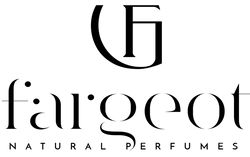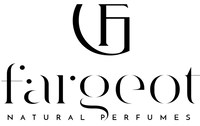Parfum, Eau de Parfum, Eau de Cologne, etc. What is the difference and what does it mean for natural perfumes?

Credit photo: Alex Rosario on Unsplash
So many terms are being used to call a perfume that it can become confusing. To add to the confusion, day-to-day language leads most of us to use words such as perfume and cologne pretty much interchangeably when in reality there are technically different things. We decided to shed some lights on such terms and most importantly how it applies to natural perfumes.
The Composition of a Natural Perfume
Our natural perfumes are made of the following group of ingredients.
Essential oils
The mix of the different essential oils is what will make the scent of the natural perfume, its essence. This is highly concentrated and harbours a strong smell on its own. Due to its high concentration, it is best to refrain from applying essential oils straight to the skin as it can be irritating and/or potentially harmful. A carrier for dilution must be used.
Alcohol
Alcohol is often used in perfumes as the carrier for dilution. The alcohol used in perfumes though is not what you will find in your common alcoholic drinks. It is much stronger than that. For comparison, drinking wine would have an alcohol concentration between 8% and 17% whereas alcohol used in perfume is around 95% alcohol concentration. Mainly odorless, such alcohol helps dilute the concentrated essential oils, mixing all the ingredients together while conserving them in its high alcoholic content.
Distilled water or Hydrosol
Both essential oils and alcohol are strong ingredients. To further dilute the essential oils and the alcohol, a softer ingredient may be introduced. Perfumers may choose to use distilled water as a soft, odourless and impurity-free ingredient. Hydrosol can also be used in the same way. Hydrosols are obtained in the process of essential oil extraction via the distillation process. When a plant undergoes such a distillation process, two products are created; the essential oil as well as water extracted from the plant, also known as hydrosol. Hydrosols are much weaker in scent than essential oils though they are not odourless and can be a nice and subtle addition to a natural perfume.
It’s all about concentration, strength and longevity
Parfum
A Parfum will have the highest concentration of essential oils (over 20% of the overall solution). This translates into it having the strongest smell and the longest-lasting power.
However, as it is highly concentrated, Parfums may be used sparingly and people with sensitive skins are more likely to have adverse reactions to the highly concentrated amount of essential oils contained in them.
Another thing to consider would be price. Essential oils are the most expensive part of what makes a natural perfume, especially when they come from rare plants. The higher the amount of essential oils, the higher the price, sometimes beyond what is considered affordable for a perfume.
Eau de Parfum
This one is considered by many as the best compromise between quality and longevity while being more accessible than Parfums. Eau de Parfums have between 15% and 20% essential oils in them.
When it comes to long-lasting power, they will be close to what a Parfum can offer though you can spray yourself more generously without the scent becoming too overwhelming.
In terms of price, this type of product remains towards the higher-end quality-wise, though it may come a lot more affordable than pure Parfums.
Eau de Toilette
This one is another good compromise, this time between affordability and strength. Eau de Toilette contains between 5% and 15% of essential oils. This means it may require you to reapply it once or twice during the day but it is a good alternative if Parfum and Eau de Parfum are too strong for you.
Eau de Toilette may also come in a cheaper range than Parfum and Eau de Parfum.
Eau de Cologne and Eau Fraîche
Eau de Cologne contains between 2% and 5% of essentials while the rest of the solution is mainly alcohol.
It is quite common for people to say that they are “wearing cologne” as an alternative way of saying that they are wearing perfume, especially to describe perfumes for men. However, Eau de Cologne is actually something different and quite specific. Literally meaning “Water from Cologne”, this type of perfume of German origin is usually citrus-based and comes in bigger bottles as a higher volume is meant to be used at once.
Eau Fraiche has the lowest concentration of essential oils (less than 2%) but as opposed to Eau de Cologne, the rest of the solution may be water or hydrosol rather than alcohol. While both are the most affordable of the bunch, Eau Fraiche is better suited to sensitive skins due to its low alcohol content.
The lasting power for both is weaker and usually doesn’t go past the 2-hour mark.
Fargeot Natural Perfumes’ choice
At Fargeot Natural Perfumes, we opted to develop our formulas as Eau de Parfum to strike the right balance of quality and longevity power for our customers.

